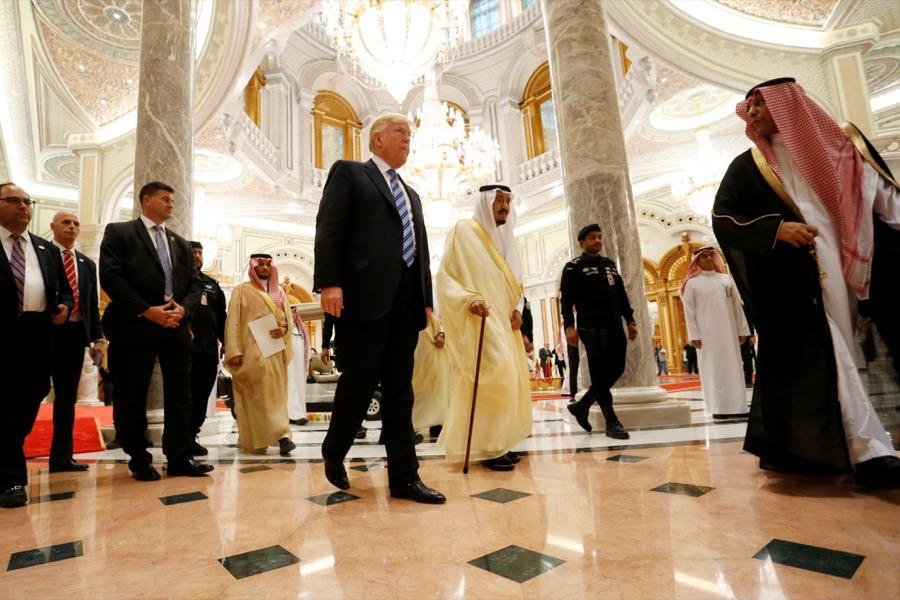Saudi Arabia could invest $20 billion in US infrastructure, but it’s not necessarily a ‘win’ for America
President Donald Trump walks with Saudi Arabia's King Salman bin Abdulaziz al-Saud to deliver remarks to the Arab Islamic American Summit in Riyadh on May 21.
Saudi Arabia plans to invest a huge sum of money in a company founded by an adviser to US President Donald Trump.
Blackstone Group said over the weekend that Saudi Arabia had signed a nonbinding agreement committing $20 billion to upgrade existing infrastructure in the United States.
Blackstone also plans to raise another $20 billion from other sources for its infrastructure fund.
The deal was announced during Trump’s first trip abroad as president, but it’s not necessarily a “win” for America.
“You have two financial interests here — obviously of the Saudi sovereign wealth fund which is putting the money in and wants to make money, and you have Blackstone which is in the business of making money,” said Arash Massoudi, who has reported on Saudi investments for the Financial Times. “They're going to target deals where they can make money for themselves, ultimately.”
There’s not many specifics yet on exactly what kind of projects Blackstone plans to invest in. But lawmakers have been talking about America’s aging infrastructure for a long time — both Trump and Hillary Clinton mentioned it on the campaign trail in 2016 — and it could target anything from pipelines to airports to highways.
Countries investing in each other’s infrastructure isn’t all that uncommon. What is unusual, says Massoudi, is the involvement of Blackstone CEO Steve Schwarzman.
Trump appointed Schwarzman the chairman of the White House Strategic and Policy Forum. There have already been calls for Schwarzman to recuse himself from the panel, following a report that he oversees “regulatory, energy and infrastructure policies that could enrich Blackstone.”
Now, Schwarzman has announced a deal that will benefit his company while the president is visiting the country in question, which Massoudi said continues to “raise all sorts of questions about the dynamic between the Trump administration and business.”
What does Saudi Arabia get out of this deal? After the old king died in 2015, there was a change in leadership. The new king’s son, Deputy Crown Prince Mohammed bin Salman, has a new vison for the country — one that involves diversifying its economy.
“What’s happening [in Saudi Arabia] under this dynamic, reformist young prince,” Massoudi said, “is an active attempt to wean its dependence off its own oil.”
There have been efforts at implementing social and cultural reforms, but the real focus has been economic. Saudis have been using some of the enormous wealth in their central bank to invest in different sectors. They recently invested $45 billion into the Japanese telecoms conglomerate — which owns Sprint in the US.
“Sixty-five billion dollars committed in the last six months?” Massoudi said. “In the game of private equity, this is an unprecedented sum of money being allocated.”
